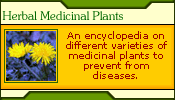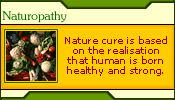|
The various functions of the essential and frequently investigated
non-essential amino acids, their deficiency symptoms and their therapeutic
uses are discussed below :
TRYPTOPHAN
Of all the essential amino acids , tryptophan is the one that is
most investigated by nutrition researchers. It is essential to blood
clotting, digestive juices and the optic system. It induces sleep
and quietens the nervous system. It wards off signs of premature
old age - cataracts of the eyes, baldness, deterioration of sex
glands and malformation of teeth enamel. It is also necessary to
the female reproductive organs and for proper utilisation of vitamin
A by the body. Major sources of this amino acids are nuts, and most
vegetables. Lack of tryptophan causes symptoms similar to those
of vitamin A deficiency.
A number of scientists feel that it can be used as a safe and effective
food remedy for insomnia and pain. Under experimental conditions,
tryptophan in doses of one gram or more has been shown to be most
effective for persons who suffer from mild insomnia and for those
who take a long time to fall asleep. Tryptophan may also be a natural
painkiller. Researches at Temple University in Philadelphia have
indicated that it worked without causing the side effects associated
with other anesthesia or analgesics.
Tryptophan as a food medicine should be taken between meals with
a low protein food such as fruit juice or bread . One to three grams
a day seems to be the range favoured by most researchers.
METHIONINE
This is a vital sulphur -bearing compound which helps dissolve
cholesterol and assimilates fat. It is required by haemoglobin,
the pancreas , the lymph and the spleen. It is necessary to maintain
normal body weight and also helps maintain the proper nitrogen balance
in the body. Rich sources of methionine are Brazil nut, Hazal nut,
and other nuts. It is also found in Brussel sprouts, cabbage, cauliflower,
pineapples and apples. Its deficiency can lead to chronic rheumatic
fever in children, hardening of the liver (cirrhosis) and nephritis
of the kidneys. Studies show that methionine and chorine prevent
tumours and proliferation.
LYSINE
Lysine inhibits viruses. Its use along with vitamin C, zinc and
vitamin A helps eliminate virus infections. Vitamin C protects this
amino acid while in the body so that lysine plus vitamin C has a
much stronger anti-virus effect than if either is used seperately.
Lysine also influences the female reproductive cycle. Lack of adequate
lysine in the diet may cause headaches, dizziness, nausea and incipient
anaemia. The main sources of this amino acid are most kinds of nuts,
seeds, vegetables and sub-acid fruits. Lysine upsets in the body
have also been associated with pneumonia, nephrosis and acidosis
as well as malnutrition and rickets in children.
It is considered a natural remedy for cold, sores, shingles and
genital herpes. In a study published in 1983, a group of researchers
polled over 1,500 people whose daily intake of lysine was over 900
mg. 88 per cent said that lysine seemed to reduce the severity of
their attacks of herpes virus and accelerated the healing time.
These results have, however, been disputes by some scientists.
VALINE
Valine is an essential body growth factor, particularly for mammary
glands and ovaries. Valine is directly linked with the nervous system.
It is essential for the prevention of nervous and digestive disorders.
Major sources are almonds, apples and most vegetables. Lack of this
amino acid makes a person sensitive to touch and sound.
ISOLEUCINE
This amino acid is essential for maintaining the nitrogen balance
vital to all body functions. It also regulates metabolism of the
thymus, spleen and pituitary glands. Rich sources are sunflower
seeds, all nuts, except cashew nuts, avacados and olives.
LEUCINE
It is the compliment of isoleucine, with a similar chemical composition
although in different arrangement. Its functions and sources are
also similar.
|


















